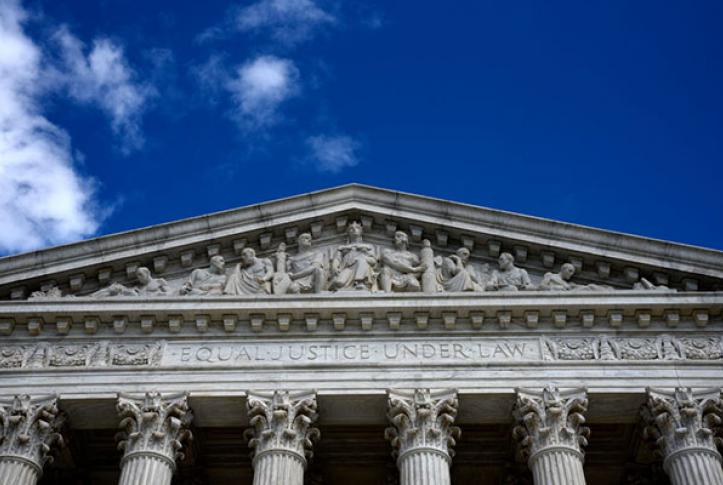Amicus, or “friend of the court,” briefs supporting the Affordable Care Act (ACA) in California v. Texas case were due at the Supreme Court on May 13. Such briefs have become a staple in Supreme Court litigation. Although individual justices pay varying degrees of attention to them, briefs supporting legal arguments made by the parties — demonstrating consensus across individuals or organizations with different perspectives or showing real-world consequences of potential decisions — can help the Court in deciding a case.
More than three dozen were filed by a wide range of experts, organizations, and government entities. The consistent message: the ACA has been successful in creating a higher-performing health care system. Invalidating the law at this point would be a legal mistake and a disaster for the U.S. health system, the economy, and the American people.
Background
California v. Texas (originally Texas v. Azar) was filed in 2018 by a group of Republican states led by Texas and two individuals. They claimed that the Supreme Court in 2012 had invalidated the ACA’s minimum essential coverage requirement (otherwise known as the individual mandate) as a legal requirement but upheld it as a tax. When the Tax Cuts and Jobs Act of 2017 zeroed out the tax, it rendered the mandate unconstitutional since it could no longer be justified as a tax. Finally, the plaintiffs argued that the rest of the ACA cannot be “severed” from the mandate and therefore the entire law must be invalidated.
A group of Democratic states led by California and the House of Representatives intervened to defend the ACA. The district court invalidated the entire ACA. The Fifth Circuit held the mandate unconstitutional but sent the case back to the District Court to decide the fate of the remainder of the ACA. The Trump administration has refused to defend the ACA; President Trump recently reiterated: “We want to terminate health care under Obamacare.” In March, the Supreme Court agreed to review the Fifth Circuit’s decision.
Who Filed the Briefs?
Nine amicus briefs were filed on behalf of more than 160 organizations representing health care consumers, people with disabilities or chronic diseases, women, older people, children, Medicaid beneficiaries, and others who depend on the ACA. Nine academic briefs were signed by more than 300 scholars in public health, economics, health policy, and law. Two briefs represented 22 medical professional associations while four more spoke for five national hospital associations, a provider, and community health centers. A separate brief was filed by 36 state hospital associations, including associations representing the hospitals in 11 of the 18 states that had brought the lawsuit.
Associations representing most of the nation’s insurers filed three separate briefs. Briefs were filed by a union that represents health care workers and a small business association. A brief was filed by 44 counties and cities and another by 47 U.S. senators. Seven states that are not participants in the lawsuit (including two led by Republican governors) filed a brief in support of the ACA, while attorneys general from two states (Ohio and Montana) filed another arguing that the mandate was unconstitutional, but that the rest of the ACA should be upheld. Finally, four briefs by interested parties address specific provisions of the ACA totally unrelated to the mandate and insurance reforms, arguing that at least these provisions should be upheld.
What Did the Briefs Say?
A brief written by prominent law professors explain why the mandate remains constitutional after the tax was zeroed out in 2017. Another argues that the federal courts have no jurisdiction over the claims of Texas and the individual plaintiffs because the plaintiffs are not injured by the mandate as it now exists. A lawsuit can only be brought to federal court by a person or entity actually injured by law they challenge. But most of the briefs focus on the third legal issue before the Supreme Court: whether the remainder of the Affordable Care Act should be invalidated if the mandate is found to be unconstitutional.
All the briefs answer with a resounding no. Most acknowledge and some discuss in detail the legal reasons why the remainder of the ACA should be “severable” from the mandate. The district court had held that “findings” in the original 2010 ACA concluded that the mandate was “essential” to creating reformed insurance markets and that without the mandate the rest of the ACA collapsed. But, the briefs argue, the Court should focus on the intent of Congress in 2017, and it is clear that Congress did not intend to repeal the rest of the ACA when it zeroed out the tax penalty. In addition, the ACA continues to function well without the mandate and thus the 2010 prediction was wrong.
The briefs mainly focus on the consequences that invalidation would inflict on Americans and the health care system. Words like “catastrophic,” “devastating,” and “chaos” appear repeatedly. Many rely on studies and data, but some tell the stories of individuals who have been helped by the ACA and how devastated they would be to lose it.
Invalidating the ACA would cause millions to lose coverage. Many with chronic diseases, disabilities, and other preexisting conditions would likely experience a deterioration in their health. Providers and professionals, as well as state and local governments, would see a dramatic increase in uncompensated care burden. Improvements that the ACA brought in health care delivery and reducing costs would be lost. The entire economy would suffer.
Finally, many of the briefs point out that loss of the Affordable Care Act could not come at a worse time, as the COVID-19 pandemic ravages the nation’s health, health care system, and economy. The ACA’s changes to private health insurance, Medicaid, Medicare, and public health infrastructure are essential for providing resilience in times of crisis and have never been more important than now.




